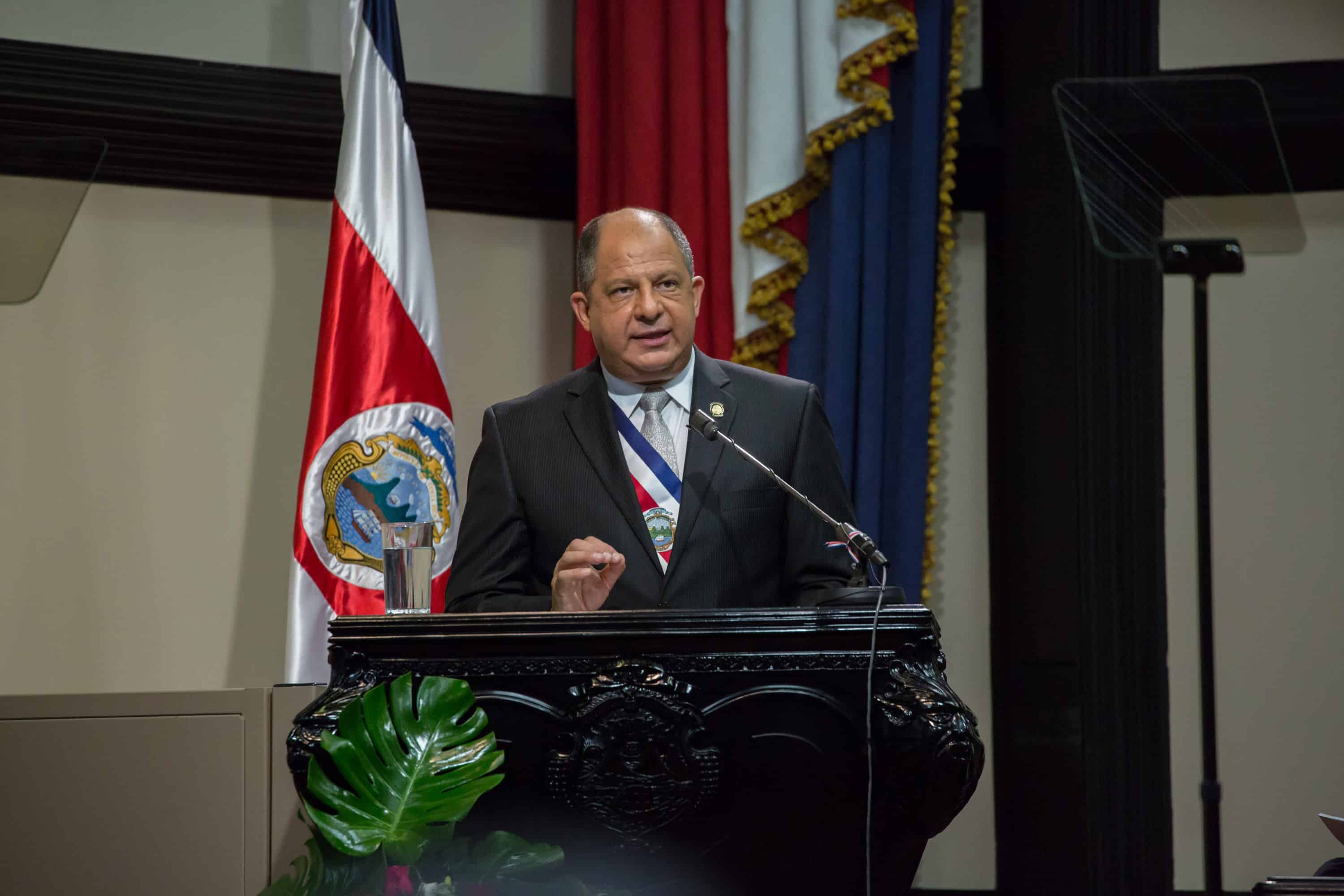With two years to go, President Luis Guillermo Solís defended his accomplishments to an uncooperative legislature and the Costa Rican public in his second State of the Nation address Monday afternoon.
Solís highlighted his administration’s achievements in the economy and other areas. But he offered no hints as to how he might change tack to achieve other, elusive goals like fiscal reform, drawing critiques from economists and business leaders.
Costa Rica’s economy has been improving. GDP grew 3.7 percent in 2015 and the Costa Rican Central Bank estimates it will grow another 4.2 percent in 2016.
The country also saw a big improvement in the World Bank’s 2016 Doing Business report, which measures the business climate in countries around the world. Costa Rica climbed 21 spots in 2015 to reach 58th.
In October 2015, the Central Bank lowered interest rates 2 percent, which the government claims has been a relief to businesses and consumers and given the economy a boost.
Despite the uptick, unemployment remains just under 10 percent and more than 20 percent of the population lives in poverty.
Orlando Soto, general manager of Grupo Financiero Acobo, said in a statement following the speech that the improved economy has more to do with larger macroeconomic factors, including the low price of oil and other commodities, than with specific actions by the Solís administration. Soto added that Solís showed little vision for the country’s economy beyond asking for more taxes as part of his proposed fiscal reform.
Costa Rican Chamber of Commerce President Yolanda Fernández Ochoa was not impressed with the president’s insistence on new taxes either. “It’s a very simplistic way to see the problems that confront Costa Rican society,” she said in a statement.
Fernández said she wanted to see more control over public spending in the short term.
Solís says his administration has been tightening the public sector’s belt, especially in collective bargaining agreements with public workers. He said the Labor Ministry had saved the government nearly ₡18 billion (roughly $32 million) when it renegotiated several union contracts over the last year. He said the ministry would go after 12 more “abusive” agreements.
He said the ministry would go after 12 more “abusive” agreements.
Still, the president maintained that new taxes were necessary to solve the deficit dilemma, which has been a concern for ratings agencies for several years.
Lawmakers have not been receptive to new taxes and several told local media they were committed to fighting the executive branch on any new taxes. Solís warned that if the legislature doesn’t pass his fiscal reform bills, the fiscal deficit would exceed 8 percent by 2018, up from nearly 7 percent in 2015.






